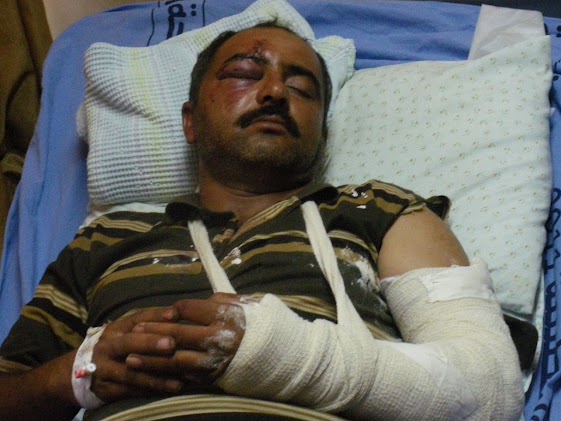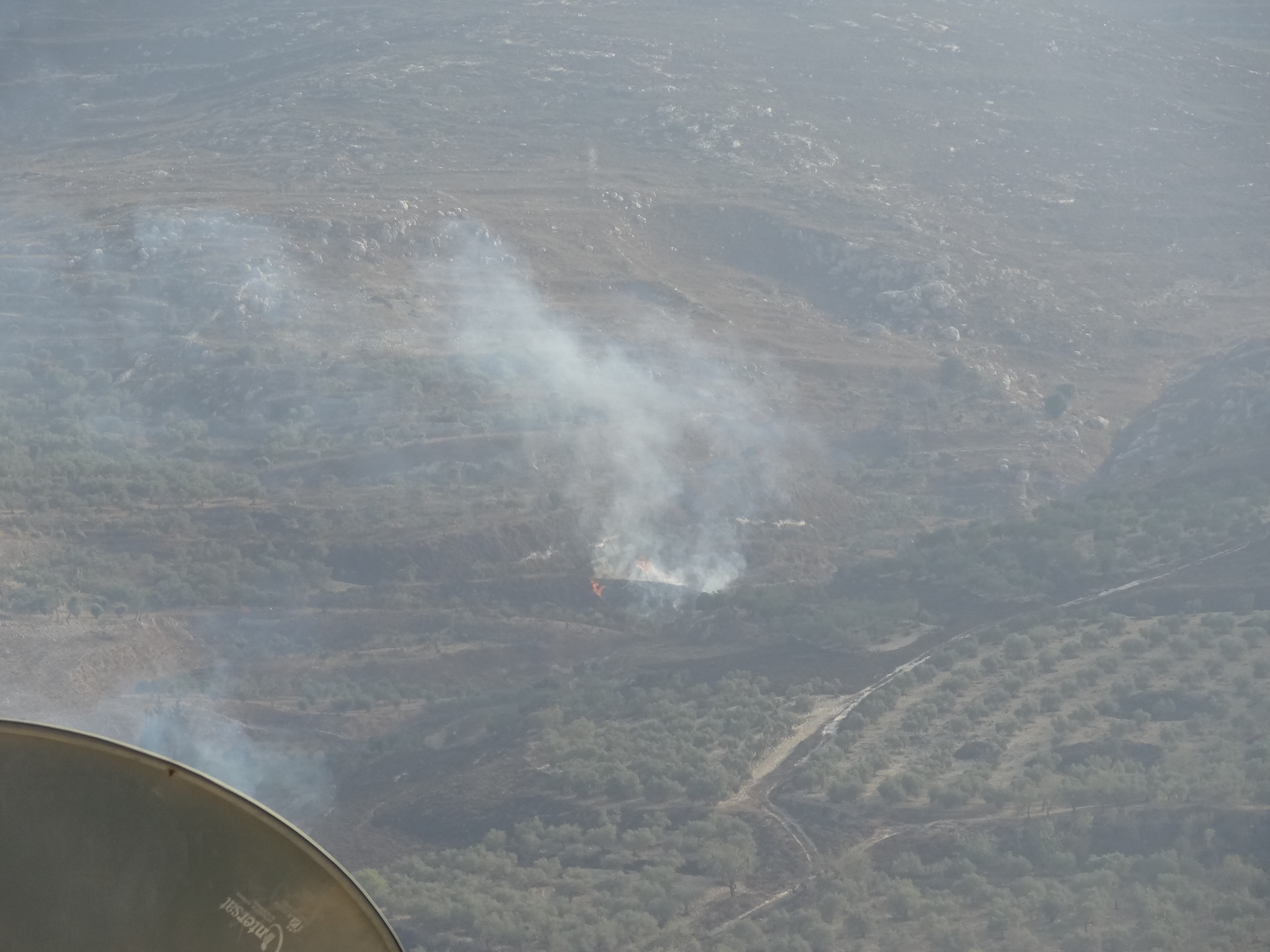Tag: Nablus
-
Qusra man left for dead after settler attack
By Ellie Marton 17 September 2012 | International Solidarity Movement, West Bank Akram Taysir Daoud from the Palestinian village of Qusra, was beaten unconscious on Saturday 15,September by Israeli settlers from the illegal outpost of Aysh Kodesh. He sustained extensive injuries, including a broken arm and major damage to his eye and face. Akram’s sister…
-
Israeli forces invade Kufr Qaddoum prior to planned protest
By Ben Greene 14 September | International Solidarity Movement, West Bank Just after noon on Friday 14th September, Israeli forces invaded the village of Kufr Qaddoum, prior to a demonstration due to begin at 1.15pm. The Israeli army and Border Police blocked a road in the village center, stopping villagers from attending Friday prayers at…
-
Settlers set Palestinian land ablaze in village of Burin
By Alex Marley 15 September 2012 | International Solidarity Movement, West Bank In the afternoon of Tuesday, 11 September 2012, settlers from the illegal Israeli settlement of Yitzhar burned farmers’ land containing almond trees in the Palestinian village of Burin. Around 10 settlers came down from the nearby settlement of Yitzhar and started to burn…


